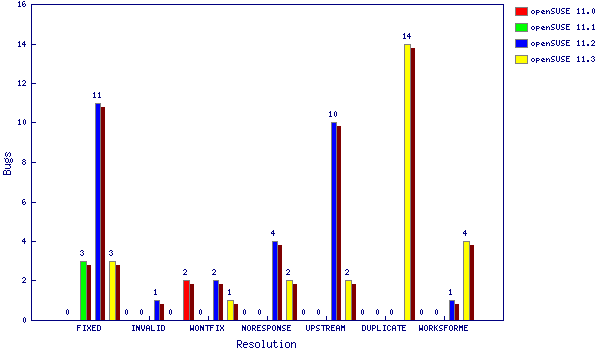The mirror of the openSUSE kernel-source repository has been around for several months already, now there is something new: A repository that is actually usable :-). The current kernel-source repository is a series of patches managed in git, which has some upsides, like the ability to easily cherry-pick a patch and port it to a different branch or send it upstream. But it is quite painful if you want to work with the code itself and not with patch files. A task as simple as determining if drivers/…/foo.c in openSUSE-11.3 has or does not have a certain change requires checking out the branch and running the sequence-patch script to be able to look at the file. If you need to know when was the file changed, you have to run ‘quilt patches <file>’ to find out what patches touched the file and then ask git about the history of these patches. Neither convenient nor efficient. That’s why we have a second repository, that contains the mainline tree with all the suse patches applied. It’s located at http://gitorious.org/opensuse/kernel, the clone url is git://gitorious.org/opensuse/kernel.git. If you already have a clone of the mainline tree, then you can download just the differences with
git remote add suse git://gitorious.org/opensuse/kernel.git git remote update suse git checkout suse/master
The above task is then solved by opening the required file in an editor or typing ‘git show branch:file’. And you don’t even need to clone the tree to quickly check something in the source, just use the web viewer. Also, bisecting is much easier, because you avoid the sequence-patch step now. There are some gotchas though:
- Not every commit to the kernel-source repository results in a change in the kernel repository. For instance updating config files in the kernel-source repository results in a commit that has no text changes. The gitorious viewer is confused by this and tells you that you are viewing the initial commit. In a local clone, you can exclude such commits with ‘git log .’ (note the dot).
- When the patch series does not apply, there isn’t much to show in the kernel repository. In such case, the commit only adds a ‘BROKEN’ file to the toplevel directory and uses the tree from the previous commit. When using a bisect script, you can skip such commits with e.g. ‘test -e BROKEN && exit 125’.
- When patches such as xen are temporarily disabled while updating to newer upstream versions and later enabled, it generates huge diffs back and forth. That’s usually not a problem unless you are bisecting something xen-related.
Anyway, I’m sure this will be useful for anyone who needs to debug something in the openSUSE kernel.
